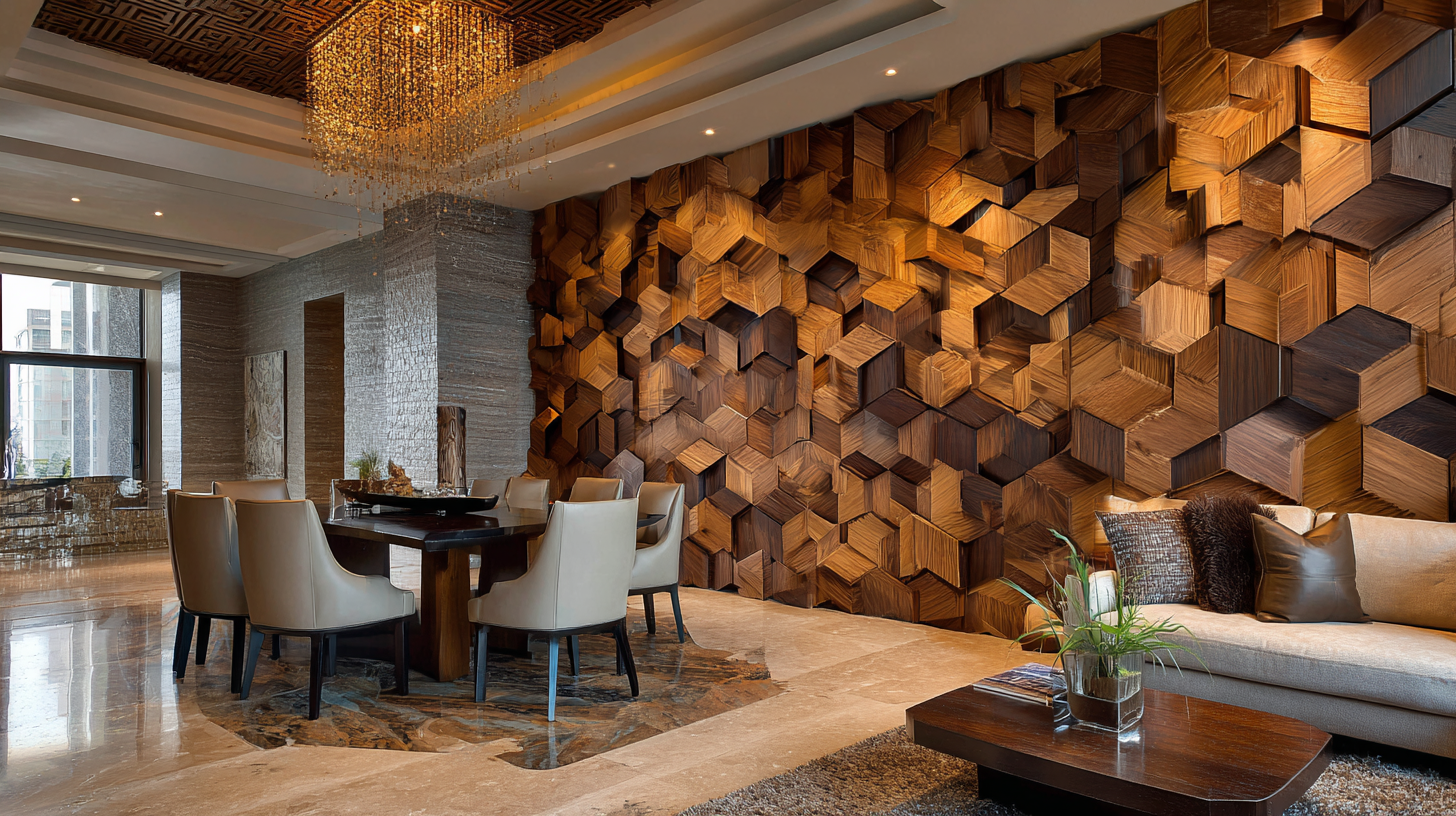In the ever-evolving landscape of interior design and construction, the significance of Decorative Panels cannot be overstated. With a projected market growth of approximately 5.1% from 2021 to 2028, as reported by Grand View Research, the demand for high-quality decorative solutions is on the rise. Import-export certification plays a pivotal role in this growth, ensuring that materials meet international standards and provide safety and aesthetic value. As global trade continues to expand, businesses entering the Decorative Panels market must navigate complex certifications and regulations that govern materials and manufacturing processes. Understanding these requirements not only enhances the marketability of these products but also assures consumers of their quality and safety. By leveraging proper certification, manufacturers can tap into premium market segments, thereby maximizing their competitive advantage in the flourishing Decorative Panels industry.

Navigating the complex realm of import-export certification is crucial for businesses engaged in the decorative panels market. Understanding the specific certification requirements is essential for ensuring compliance with international trade regulations. Each country has its own set of standards, which can include safety certifications, environmental assessments, and quality control measures. For instance, many regions require decorative panels to meet specific Fire Safety Standards or Eco-labeling, which not only safeguard consumer interests but also protect the environment.
Additionally, proper documentation is vital when exporting decorative panels to different markets. Businesses should familiarize themselves with import tariffs, customs procedures, and necessary certifications such as the CE mark in Europe or the EPA standards in the United States. Engaging with a knowledgeable customs broker or trade consultant can greatly facilitate this process, ensuring that all aspects of compliance are met and potentially expediting the movement of goods across borders. By investing time in understanding these requirements, companies can not only avoid costly delays but also enhance their competitiveness in this vibrant market.
 Navigating the certification process for decorative panel imports is fraught with challenges, particularly in ensuring compliance with various international standards. One of the most pressing issues is maintaining quality control while managing costs effectively. Importers often find themselves juggling the necessity of adhering to regulations with the pressures of a competitive market. This balancing act can lead to confusion and delays, especially when dealing with a diverse range of products, from metallic items to everyday consumer goods.
Navigating the certification process for decorative panel imports is fraught with challenges, particularly in ensuring compliance with various international standards. One of the most pressing issues is maintaining quality control while managing costs effectively. Importers often find themselves juggling the necessity of adhering to regulations with the pressures of a competitive market. This balancing act can lead to confusion and delays, especially when dealing with a diverse range of products, from metallic items to everyday consumer goods.
Furthermore, the introduction of organizations like the International Tropical Timber Organization (ITTO) represents a significant step towards addressing concerns about sustainability in the decorative panel market. As importers adapt to new compliance demands, they must be vigilant in sourcing materials that not only meet certification standards but also support environmental stewardship. The intricate web of regulations and the push for higher quality standards make it crucial for businesses to navigate these challenges thoughtfully, ensuring that they do not compromise on either quality or cost in their pursuit of certification for decorative panel imports.
Navigating the regulatory landscape for decorative panels can be a complex challenge, especially for businesses looking to expand their reach across different markets. Each region imposes its own set of standards and certifications that manufacturers must comply with to ensure product safety and quality. This means that companies must thoroughly research and understand the specific requirements of each target market, as failure to meet these standards can result in costly delays and penalties.
In Europe, for instance, decorative panels may need to adhere to the CE marking requirements, which signify compliance with essential health and safety regulations. On the other hand, markets in North America may focus more on certification from organizations like the American National Standards Institute (ANSI) and the Forest Stewardship Council (FSC). Additionally, emerging markets might have less stringent regulations, but businesses should be cautious as lower standards can lead to increased scrutiny from consumers and potential backlash on sustainability issues. Therefore, staying informed and adaptable is crucial for companies aiming to export decorative panels successfully.

Navigating the complexities of import export certification can be daunting for businesses in the decorative panel market. To streamline this process, it's crucial to familiarize yourself with regulatory requirements and stay updated on industry standards. Compliance not only ensures smooth transactions but also builds trust with your international partners.
Here are some tips to help facilitate the certification process for your decorative panel business. First, consider digitizing your documentation and storing it in a centralized system to easily access required certificates and records. This can save time and reduce the risk of errors. Second, establish strong relationships with reliable freight forwarders who understand the nuances of import export laws in your target markets. Their expertise will help you navigate certifications more effectively, reducing potential delays.
Lastly, invest in B2B wholesale apps that cater to your needs. These tools can streamline your communication with suppliers and customers, making it easier to manage certification-related queries. By adopting these strategies, your decorative panel business will be better equipped to handle the complexities of import export certification efficiently.
The decorative panels market, valued at approximately $4.5 billion in 2022 and projected to grow at a CAGR of 6.1% through 2030, faces significant challenges due to certification problems. Such issues can lead to delays in market entry and increased compliance costs, ultimately squeezing profit margins for manufacturers. For instance, according to a recent industry report, nearly 30% of companies in the decorative panels sector experienced project hold-ups due to inadequate certification, translating to potential losses of up to $1 million for mid-sized firms.
Moreover, the certification landscape is constantly evolving, with new regulations affecting the import-export processes. Data from the International Trade Administration reveals that certified products are often favored in competitive markets, giving companies with proper certifications a decisive edge. Those lacking the necessary certifications may find their market opportunities significantly limited, as clients increasingly demand products that meet stringent safety and environmental standards. As a result, addressing certification challenges is crucial for businesses looking to tap into the lucrative decorative panels market and expand their global reach.
